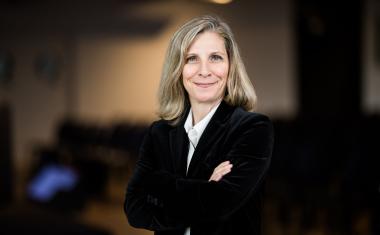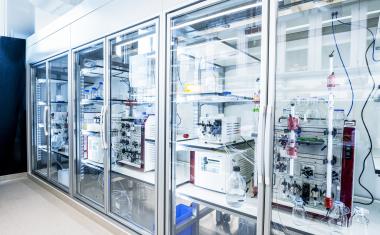Polybion - Revolutionary Biomaterials for Forward Thinkers
Mexican start-up Polybion produces a cell-based leather alternative named Celium, a versatile material made out of bacteria-grown cellulose, that can be dyed and formed into different textures.
Local food waste is being used as a source material to be processed by the bacteria, enabling a regenerative production process and a sustainability-oriented scaling. The process does not use hazardous chemicals, minimizes water and soil contamination, adding to a circular production.
For these reasons, Polybion has been chosen as the winner of the Special Impact category for the ISC3 Innovation Challenge 2024 and the International Sustainable Chemistry Collaborative Centre (ISC3) presented the Company as the ISC3 Start-up of the Month for January 2025.
Polybion recognized the importance of scalability and built up a solid scaling strategy, which is based on three pillars: volume, consistent quality, and competitive pricing. By leveraging existing fermentation technologies and modular processes, they can produce Celium efficiently while reducing resource intensity. This approach not only meets industry demand but also offers a meaningful alternative to materials that rely on extractive or synthetic methods. Furthermore, it also ensures that their technology can be easily adopted worldwide. At the start of Polybion, no other company was innovating with bacterial cellulose at the scale and depth that the start-up envisioned.
Celium tackles multiple environmental issues caused by the traditional textile industry. By using fruit waste as their feedstock, they divert organic waste from landfills and reduce methane emissions. Polybion´s production avoids hazardous chemicals, minimizing water and soil contamination. Compared to traditional leather, their process requires significantly less water, land, and energy.
The whole success story of the ISC3 Start-up of the Month in January 2025 is currently told by the ISC3 on its website at Start-up Polybion (isc3.org).


Three questions for Alexis Gómez-Ortigoza (Co-Founder & CEO of Polybion):
What led to your solution in Sustainable Chemistry?
Alexis Gómez-Ortigoza: Our journey wasn’t about founding a company first—it was about discovering a solution and giving it a name. Celium was born out of the need to create a material that could address the shortcomings of traditional leather and synthetics. Sustainable Chemistry plays a crucial role, especially in our stabilization process (akin to tanning), where we developed a proprietary method that avoids hazardous chemicals. Our technology combines bioengineering with material science. We grow Celium by feeding bacteria with locally sourced fruit waste, enabling a regenerative production process. This approach allows us to scale sustainably.
What does being chosen as ISC3 Start-up of the Month mean to you?
A. Gómez-Ortigoza: It’s an honour to be recognized by ISC3. This acknowledgment validates the impact of our innovation and motivates us to continue pushing boundaries in the biomaterials space. It’s also a testament to the hard work of our team and partners who believe in our mission.
What’s next up at Polybion?
A. Gómez-Ortigoza: Our next big step is to bring Celium to market through partnerships with brands in fashion, furniture, and automotive sectors. We also plan to expand our biomanufacturing capabilities to meet the growing demand for biomaterials and eventually license our technology.
Company

International Sustainable Chemistry Collaborative Centre ISC3Friedrich-Ebert-Allee 32 + 36
53113 Bonn
Germany
most read

CHEManager International Media Kit 2026
Compelling solutions through strategic partnerships


Orion Announced Plans to Shut Down Carbon Black Plants
Carbon black manufacturer Orion Engineered Carbons plans to rationalize production lines in North and South America and EMEA.

VCI Welcomes US-EU Customs Deal
The German Chemical Industry Association (VCI) welcomes the fact that Ursula von der Leyen, President of the European Commission, and US President Donald Trump have averted the danger of a trade war for the time being.

Dow to Shut Down Three Upstream European Assets
Building on the April 2025 announcement, Dow will take actions across its three operating segments to support European profitability, resulting in the closure of sites in Germany and the UK.












